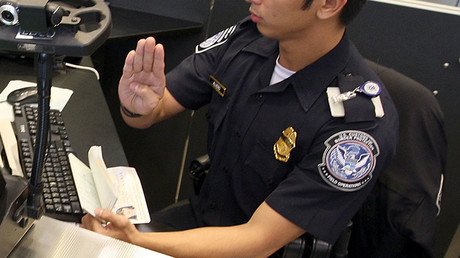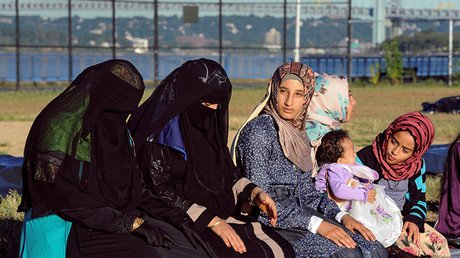‘Do you like camping?’ FBI uses 48 questions to calculate a person’s terrorism risk

Determining whether someone will carry out a terrorist attack is a struggle for governments across the globe. However, the FBI uses a survey of 48 questions to help them decide – and one of the indicators is apparently if a person likes to go camping.
The ‘Indicators of Mobilization to Violence’ survey, obtained by the Intercept in a classified FBI document, has reportedly been used by the FBI since the fall of 2015.
In a series of 48 questions, the survey assigns points based on certain factors. There are six categories: background, ideology, research and planning, social, training and preparation, and travel.
Some of the questions seem logical for the agency to ask, such as if the suspect has “articulated a desire to conduct violent jihad,” whether they have “participated in gatherings where plotting violence is discussed,” or are a “regular consumer of extremist propaganda.”
Others focus on the subject’s emotional state, such as whether there has been a significant change in their behavior, or there has been a sudden withdrawal from their day-to-day activities.
However, other questions are extremely ordinary, including whether the person has experienced a “recent personal loss” including a death, break-up, divorce, or loss of job. Another asks whether the suspect has sought employment in an occupation with sensitive access, such as an airport or law enforcement facilities.
Of particular note is question 42, which asks whether the suspect has participated in activities which “simulate military or operational environments,” including paintball, laser tag, or camping/survival trips – a question which a large number of Boy Scouts, teens, or outdoor enthusiasts would undoubtedly answer in the affirmative.
The document explains that all FBI agents working on counter-terrorism cases are required to fill out the survey through the agency's case management system, and update answers as they learn of new information.
Once the agent has submitted the answers, the survey generates scores on a scale of 0-100, which show “the subject’s level of mobilization or likelihood of carrying out a violent act,” as well as their “likely level of radicalization or internal commitment to violent ideology.”
The overall score, according to the FBI, is calculated via “statistical methodology” which compares the subject’s situation with historical counter-terrorism cases.
However, the agency stresses that high scores “do not provide conclusive evidence that a subject will take violent action,” and should be used for comparative purposes only.
The document also states that anonymized data from the survey will be shared with defense partners in the so-called ‘Five Eyes Alliance’, consisting of the UK, Canada, Australia and New Zealand.
The FBI declined to answer the Intercept’s specific questions about the document, but stated that “these surveys are but one part of our internal assessment process in counter-terrorism cases.”
Despite the agency's efforts at identifying terrorist suspects before they launch any potential attacks, a recent study published by the National Consortium for the Study of Terrorism and Responses to Terrorism says such efforts are largely futile.
“The factors that come out over and over again as risk factors for radicalization are things that are present in the lives of millions of people who will never radicalize,” Michael Jensen, one of the report’s authors, told the Intercept. “There’s just not going to be a simple checklist of warning signs for future violence.”
The survey report comes as President Donald Trump continues his vow to fight extreme Islamic terrorism in the US, promising to fight for his travel ban on citizens from seven mainly-Muslim countries to be upheld.
On Thursday, the US Court of Appeals for the 9th Circuit refused to reinstate the travel ban, which had previously been suspended by a lower judge. The case is likely to be appealed until it reaches the Supreme Court.















